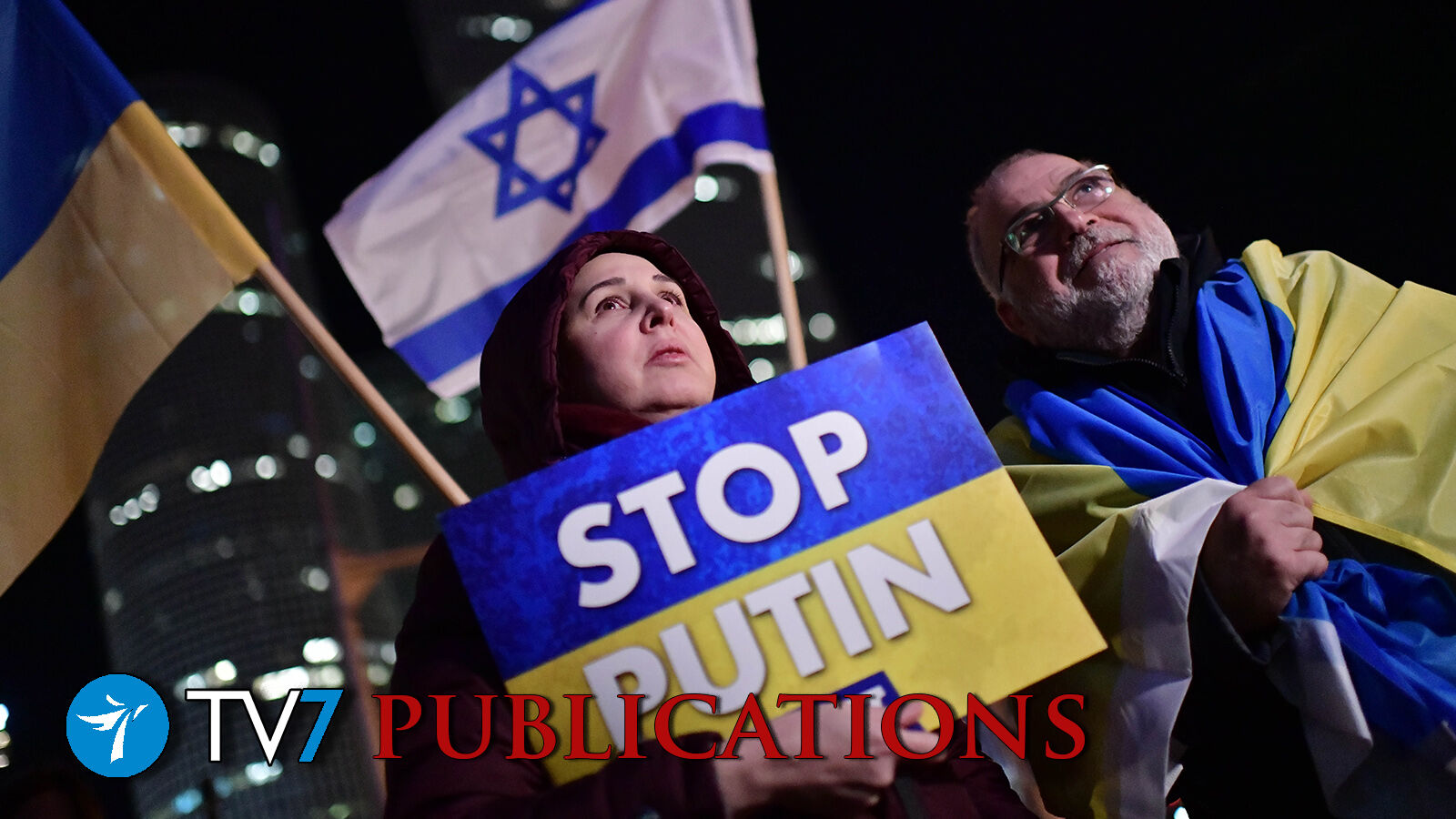For Israel, this is evidence that its self-reliance doctrine must be nourished with no illusions about foreign support in times of crisis. Moreover, Turkey probably sees NATO more positively since it borders Russia, pushing Ankara toward the West.
By President of the Jerusalem Institute for Strategy and Security.
Ukraine behaved somewhat recklessly toward its large and ruthless Russian neighbor, and it was left alone to deal with Russian President Vladimir Putin.
For Israel, this is evidence that its self-reliance doctrine must be nourished with no illusions about foreign support in times of crisis. Despite its public support for Ukraine and the sanctions imposed on Russia, the West is not ready to send its soldiers to defy aggression.
Indeed, the Ukraine predicament points out again the lack of value of international guarantees.
The 1994 Budapest Memorandum, signed by the Russian Federation, the UK, and the US, provided security assurances against threats or the use of force against the territorial integrity of Ukraine, Belarus, and Kazakhstan in exchange for giving up their nuclear weapons. The memorandum was not respected when Russia conquered Crimea in 2014. The inaction of the guarantors was repeated in 2022.
International institutions similarly failed in providing security. For example, the US called a UN Security Council meeting to discuss Moscow’s invasion of Ukraine, knowing that Russia has veto power. This so-called “preventive diplomacy” in Washington ended in futile angry clashes between Russian and American envoys.
The war in Ukraine also showed Israel’s growing international stature. It is one of the few countries that maintained direct contact with all parties. Its attempts to mediate between the warring protagonists were well appreciated. This allows Israel greater leeway in maneuvering in the international arena, alleviating the pressures to identify with the West and support sanctions against Russia.
Countries that believe that there are no real “bad guys” in the international system suddenly realize that having armed enemies on their borders ready to wage war is possible.
Maybe, going forward, the international community will better understand Israel’s predicament in a tough neighborhood.
Further, Israel is an energy exporter when there is greater scarcity in the international market. This adds to its global status.
The new situation also influences Israel-Turkey relations. The Turkish efforts to secure Israeli gas are more significant than before the crisis, strengthening Israel’s hand in its negotiations with Ankara.
Moreover, Turkey probably sees NATO more positively since it borders Russia, pushing Ankara toward the West. It is less likely to obstruct Israel-NATO relations.
The Russian invasion of Ukraine reminds the world that the use of force is still one item in a nations’ toolbox.
For Europe, the crisis is eye-opening, and the illusion that war was an anachronism was shattered. The War in Ukraine has shaken Europe, leading to a dramatic increase in threat perception and a greater willingness to spend on defense. Germany alone has increased defense expenditure by one billion euros.
It is not clear how the Vienna nuclear talks regarding Iran will be affected by the Ukraine crisis. The US seems determined to prevent any linkage, but in the meantime, the talks are stalled – not a bad development from an Israeli perspective.
The Ukraine crisis is partly a result of the misguided American expansion of NATO eastward and a deterrence failure. Moreover, its insistence on addressing the issue without demonstrating its willingness to use force is seen as a weakness. Biden’s remark on the need to remove Putin from power looks quixotic.
Finally, American feebleness and eagerness to give in to whimsical Iranian behavior cements the Abraham Accords. It gives rise to the new Egyptian, Emirati, and Israeli alignment in the Middle East.
The developing global strategic landscape will probably be beneficial for Israeli defense companies. They expect a significant rise in sales following the security crisis unleashed by Russia’s invasion of Ukraine as more funds are freed for military procurement.
German Chancellor Olaf Scholz has already announced that Germany will buy combat drones. Germany currently leases five Heron drones from Israel Aerospace Industries.
Other NATO members are expected to boost military procurement programs, including Eastern European countries directly threatened by Russian aggression or Western European states seeking to rebuild deterrent capabilities against Moscow. Drones and loitering munitions are expected to be key focus areas.
One welcome result of the war is a demographic flow to Israel. While Israel tried many methods to convince the Jews of Ukraine to move to Israel, Russian tanks seem to have greater persuasion power on the calculus of Ukrainian Jewry.
As a result, many Jews are moving to Israel. Perhaps Jews in Russia could join this trend.
While war is never welcome, it may have some positive implications.
JISS Policy Papers are published through the generosity of the Greg Rosshandler Family.
